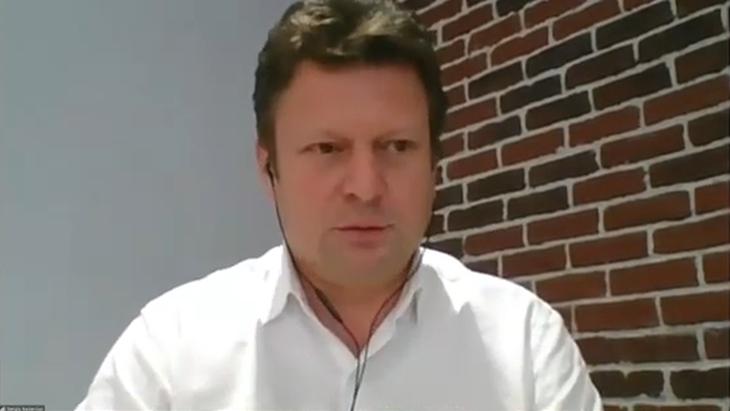Photovoltaic power plants for self-consumption reduce electricity costs by up to 40%, said Sergiu Bazarciuc, Executive Manager, Simtel, during the ONLINE conference “Green solutions for commerce, industry and buildings”, organized by Energynomics. “There is this price predictability for the energy component that you offer yourself and, at the same time, you contribute to reducing carbon emissions. Thus, 1 MWh of energy produced reduces emissions by 1.3 tCO2”, said Sergiu Bazarciuc.
The installation costs for a solar power plant, with approvals included, amount to about 700-850 euros per KWp, and 1 KWp installed produces 1,100-1,300 kWh of energy annually, using 7-8 sqm of the roof. The amortization period varies, depending on the energy price, between 5 and 7 years, the rate of return (IRR) being about 10-12%. The systems have a lifespan of 25 years, and maintenance costs amount to 7-9 euro / kWp annually. The projects can be implemented in 30 to 90 days.
In recent years, Simtel has installed 20 plants for MegaImage, 27 plants for Dedeman, 46 for Penny Market, 250 for Telekom, 10 for Vodafone, 2 for Kaufland, as well as other manufacturers in various industries.
Simtel is also active in the field of electric charging stations. The legislation will impose new developments in buildings of the future. Large buildings will need to have at least 10% of parking spaces equipped with charging points for electric cars by 2025. In a partnership with ABB, Simtel is building 22kW normal charging stations (AC), fast charging stations of 54 kW (AC and direct current – DC), as well as ultra-fast stations, 150 kW DC. “We make turnkey solutions, establish the implementation solution, the engineering and design part, obtaining authorization, installation and maintenance.”
“We are developing, it is almost completed, a software platform for the operation and maintenance of e-charging stations regardless of the model of the stations,” he added, as he presented some case studies from the retail segment (12 units for Penny Market, on the A2 highway, and 37 stations for another retailer).
DOWNLOAD THE PRESENTATION OF SERGIU BAZARCIUC
Simtel, a company specialized in engineering, supply of equipment and materials, construction and maintenance (EPCM) founded in 2000, was launched this year on the Aero market of the Bucharest Stock Exchange under the symbol SMTL. “We are a company of technical people, engineering and technology, and 60% of the company’s employees are engineers. We operate in three fields: the field we started with, telecommunications, where we carry out turnkey projects for telecom operators in Romania and abroad, industrial automation and renewable energy. We work on the energy efficiency side and solutions mainly focused on solar resources. What differentiates us is the fact that we have partnerships with large, multinational companies, but also with Romanian companies, such as Dedeman and Altex. We have done over 550 large projects in the industries in which we operate, and in the photovoltaic segment, we are the sole ABB service partner in Romania for the maintenance of solar inverters”, he said.
Simtel ended 2020 with a turnover of 10 million euros and has so far built capacities totalling 33 MW of installed power on buildings. The company, active in 12 countries, has 65 large photovoltaic power plants in its maintenance portfolio, with over 6,000 active interventions in solar parks.
The ONLINE conference “Green solutions for commerce, industry and buildings” was organized by Energynomics, with the support of our partners: BCR, Enel X Romania, EnergoBit, Schneider Electric, Simtel, Wiren.

